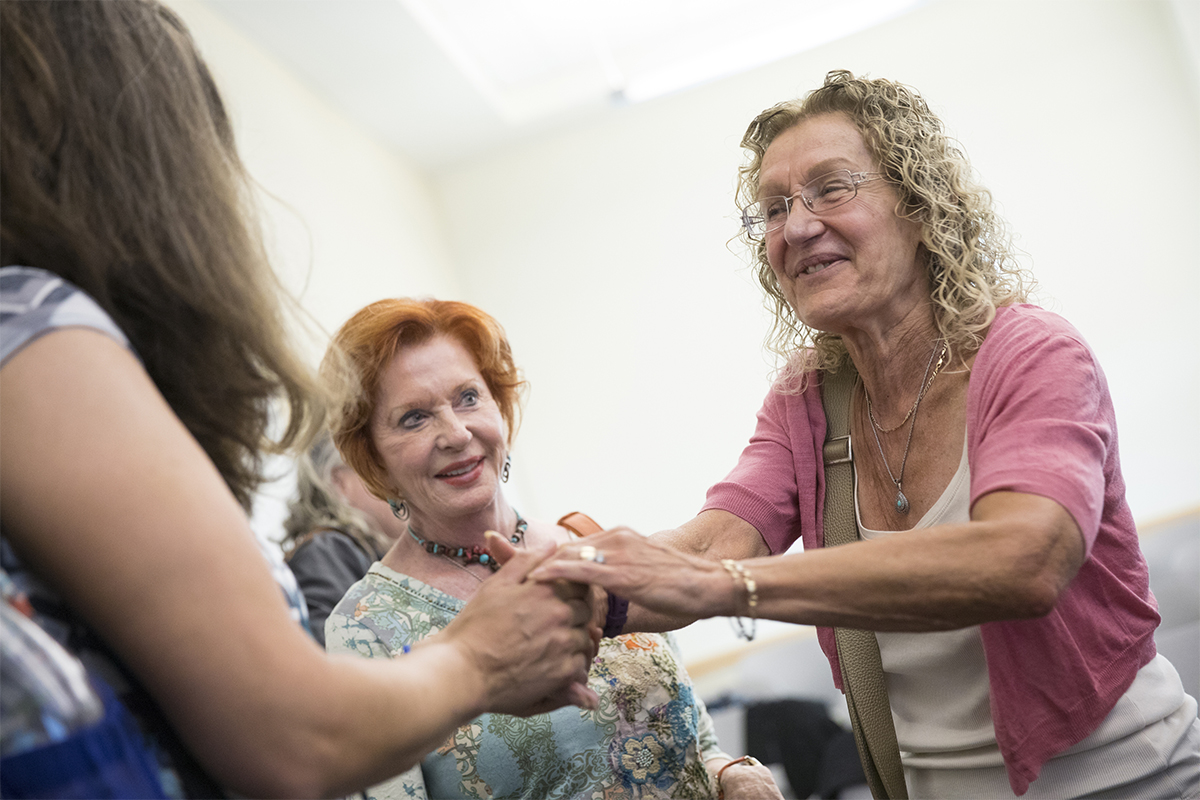Jean Quataert promoted to distinguished professor of history
Professor of history promoted for "pioneering and transformative contributions"

Professor of History Jean Quataert has recently been appointed distinguished professor by the SUNY Board of Trustees for making “pioneering and transformative contributions to German and women’s history, gender studies, global history and human rights history.”
Promotion to distinguished professor is reserved for those who have achieved national or international prominence and a distinguished reputation within their discipline. Quataert joins more than 30 active and as many emeritus distinguished faculty at Binghamton University. Her late husband, Donald Quataert, was also a distinguished professor of history.
In announcing her promotion, the SUNY system noted that, “At each stage of her career, Quataert has challenged the prevailing assumptions and categories of the fields in which she works, broadening the framework of understanding and discussion in ways that have not only made her a figure of national and international renown, but that fundamentally reframe how we as a society conceptualize and address questions of justice and human rights.”
Quataert said she is quite astonished and totally delighted to receive the promotion. “I’m very pleased. It’s a wonderful recognition of the scholarship that I’ve done over my whole career,” she said. “It’s a statement from my colleagues about how they assess my work.
“I’ve been committed to scholarship and believe in my work,” she added.
Binghamton University President Harvey Stenger noted that Quataert’s books “have shaped ‘five historical fields: European socialism and feminism; gender and labor in manufacturing; the history of patriotic women, philanthropy and nation formation; gender, medicine, and war; and the history of international law and human rights.’ Professor Quataert is truly a scholar of the highest caliber.”
“Professor Jean Quataert is a historian of the first rank who has established an international reputation for the rigor, freshness and pioneering nature of her scholarly work,” wrote Provost and Executive Vice President for Academic Affairs Donald Nieman. “She has transformed our understanding of modern European political, social and labor history by viewing these subjects from the perspective of women and through the lens of gender. She has been a pioneer in establishing transnational history as an important historical paradigm and enriched our understanding of contemporary human rights.”
Quataert’s research has highlighted the role of women in history, the relationship between the gendering of society and power relationships, the need to think transnationally about issues faced by modern nation-states and the importance of global, grassroots efforts in advancing positive change. The SUNY system noted that her promotion recognizes that “many of the assumptions fundamental to historical research today emerged through debates and inquiries in which she played a pivotal role.”
Quataert, who joined the faculty at Binghamton University as a full professor in 1986, also served as director of women’s studies from 1986 to 1989, and vice chair for graduate studies from 1990 to 1996. She received her bachelor’s degree in international relations, Phi Beta Kappa, from the University of California at Los Angeles (UCLA), her master’s in history from Columbia University and her PhD in history from UCLA.
Prior to joining the faculty at Binghamton, she taught at the University of Houston-Clear Lake.
A recipient of both the Chancellor’s Award for Excellence in Scholarship and Creative Activities in 2009, and the Chancellor’s Award for Excellence in Teaching in 1999, Quataert has been co-editor of The Journal of Women’s History since 2010. When she retires from teaching after the current academic year, she will continue to co-edit the journal until 2020, as a Bartle professor.
Several of Quataert’s former students returned to campus for a retirement symposium in her honor in September. At the time, she said she was moved. “These are students I’ve trained over the years in different fields of history. It’s quite exciting. I haven’t seen some of them in a few years.
“I’m a pioneer in women’s history and of the first generation of academics looking at modern women’s history,” she said. “I’ll end my career editing the premier journal in women’s history. I still have some work with students and I’m working on two books. I’ll be busy!”
A prolific scholar, Quataert has authored five books, co-edited five others and published nearly three dozen articles and chapters. She has written book reviews for well over a dozen journals, and presented more than 40 papers and at more than three dozen professional conferences and workshops. She has directed 11 doctoral dissertations, including three that received the Binghamton University Distinguished Dissertation Award in the Social Sciences, and she has presented numerous guest lectures and seminars and been a reader for over a dozen presses and journals.
She has been awarded prestigious fellowships by the National Endowment for the Humanities, the American Council of Learned Societies, the German Marshall Fund and the German Academic Exchange. Her pivotal article on women’s work in Central Europe, published in the American Historical Review, won both the Central European History Prize and the Berkshire Prize for the best article in the discipline of history authored by a woman.
Quataert won’t have the regularity of teaching at a particular time after May 2018. “On the other hand, I just sat in on a PhD exam and prospectus defense and had such a fabulous intellectual time,” she said. “I’m going to miss that!”
Quataert also plans to return to playing the clarinet and to become active supporting political candidates she believes in.
